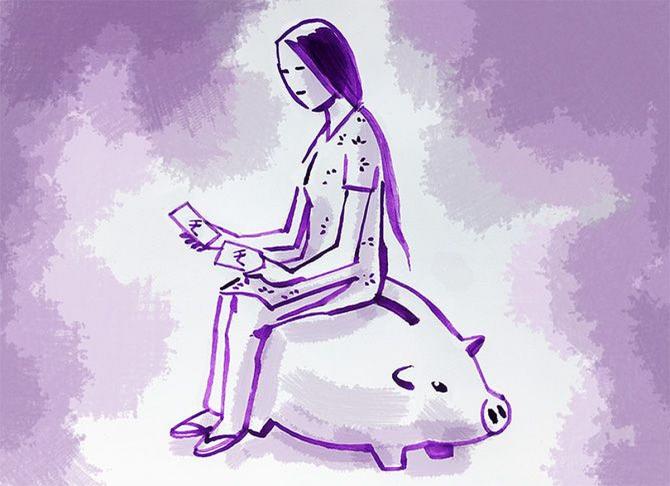'We need to be far more careful given the fact that while this is group lending, it's essentially unsecured.'

Microfinance institutions (MFIs) have become "far more rigorous" in credit assessment and lending since the new underwriting norms came in, says Manoj Nambiar, managing director of Arohan Financial Services.
Nambiar, who is also vice-chairman of MicroFinance Institutions Network, spoke with Raghu Mohan/Business Standard about how the industry is changing and why credit rating is customers' responsibility.
How does the microfinance sector look at this stage with talks of enhanced stress and weak rural demand?
The segment is defined as households with an annual income of less than Rs 3 lakh per annum.
Given the new underwriting norms with assessment of income, the new income limits, and the fact that debt repayment obligations of the household cannot be more than 50 per cent of the income, all of us are far more rigorous in terms of credit assessment.
There is also a very strong credit bureau discipline with four bureaus tracking each loan that the customer has taken from any Reserve Bank of India (RBI)-regulated entity (RE).
So, I would say that lending has become far more prudent and conservative.
Now, despite the ground-level checks which are done before a loan is given, we do see a slight up-tick in delinquencies.
But that's something which I think is the after-effect of what happened during the pandemic.
The new portfolio which is being written is actually performing better than, or is equal to what it used to be pre-Covid.
But definitely, there's a need to be cautious when underwriting new loans.
We need to be far more careful given the fact that while this is group lending, it's essentially unsecured.
The RBI has red-flagged concerns on unsecured lending. How does this play out in your space?
If you read the RBI's announcement, it is bank loans to non-banking financial companies (NBFCs) which do unsecured lending that have attracted higher risk weights.
Now, two particular categories have been exempted: MFIs and housing finance companies.
Given the fact that both are priority sectors in terms of lending, the RBI is very keen that the fund flow is not constrained.
We do not expect any change in the interest on bank lending to us - if at all it will be positive.
A few political parties in recent times have raised the issue of loan waivers. Is this a cause for concern?
The good thing is that not a single political party - be it state or national elections - has ever spoken about waiving off MFI loans.
There is a lot of chatter around agriculture loans because it's a sector which can go through a bit of stress.
To that extent, customers who have taken those loans may need partial relief in terms of interest; or in some extreme cases, maybe even partial or full waiver of loans.
We clearly explain to our customers that their credit record at the end of the day is their own responsibility; and if they do not pay, it's going to show up in the credit-bureau records.
Once you are past 90-days due, you become a nonperforming asset and then no RBI RE will give you a loan.
How do you view the Telangana High Court's order on MFIs?
It's a very positive development and it has come after 10 long years. The sector has been engaged with the judiciary right from 2010 when the Andhra Pradesh ordinance got converted into the AP MFI Act.
The AP MFI Act sought to regulate MFIs with micro guidelines on centre meetings, no-objection certificates, etc, which unfortunately got construed as a sort of waiver of the then loan outstandings of borrowers.
The RBI is the regulator as far banks and NBFCs are concerned and this led to a dual regulation of sorts.
Not only was the case resolved in the High Court, but in a separate ruling, the Supreme Court (SC) has also said that in the case of a corporate body licensed by the RBI - either as a bank or a NBFC - there cannot be dual regulation.
If you are licensed by the RBI, it will frame the rules and regulations for your compliance; and if you have been licensed by a state government, which essentially means a society, trust or co-operative, then it will regulate.
If there's an issue with an RBI-regulated entity and anybody including a state department wants to flag it, it can write to the RBI highlighting the instances where they found this particular entity has violated some norms.
The RBI will do the investigation. The Money Lending Act, which most of the states essentially use to invoke to oversee such lenders, does not apply to RBI REs.
Feature Presentation: Aslam Hunani/Rediff.com











